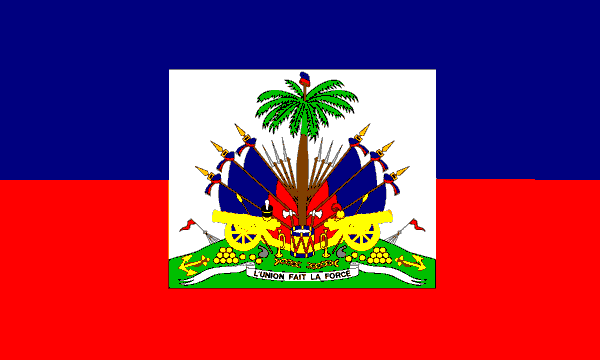From the Open-Publishing Calendar
From the Open-Publishing Newswire
Indybay Feature
Haiti: Did He Jump or Was He Pushed? The 2004 Coup Against Aristide
A little less than four years ago, in late February 2004, France, the US and a few other old ‘friends of Haiti’ called on the country’s elected president Jean-Bertrand Aristide to resign.

No doubt Haiti’s friends had their reasons. Following its landslide election victory in May 2000 Aristide’s Fanmi Lavalas party had proved that it was likely to dominate Haiti’s parliamentary democracy for the foreseeable future: after the rather less decisive election of George W. Bush later that same year, some of Aristide’s older friends in the US began taking newly energetic steps to undermine his administration. A couple of years later, when Aristide began asking France to repay the enormous amount of money that it had extorted from its former slave colony during the previous century, international responses to his government quickly evolved from routine hostility to outright aggression.
No-one disputes the fact that during his last few days in office, these same countries threatened Aristide with a ‘bloodbath’ if he chose to serve out the remainder of his term in office. Nor can anyone easily dispute the fact that by early 2004, Haiti’s oldest friends had done everything necessary to make such a threat look imminent and plausible. Even before he returned to office in February 2001, they had gone to considerable lengths to promote both a political and a paramilitary opposition to Aristide’s government, an opposition that adopted the elimination of Aristide as its very raison d’être. Relentless pressure from these opponents, combined with punitive economic measures implemented by their foreign patrons, eventually backed Aristide into a corner from which he couldn’t escape. By 28 February 2004, the area of the country that remained under the government’s direct control had shrunk to little more than greater Port-au-Prince. A small but well-armed and well-funded military force led by ex-soldiers Guy Philippe and Jodel Chamblain was apparently poised to attack the capital. The government’s rather less well-armed security forces were no longer reliable, and the international community had made it clear that it would only intervene once Aristide agreed to step down. Although there’s little chance that Philippe’s men could have taken the city on their own they might well have managed it, eventually, with suitable international support. The night of 28/29 February, the prospect of a bloodbath was real enough.
What’s more controversial ― and more likely to stay that way ― is what happened in the climactic hours just before Aristide left Haiti. With his back to the wall, did he choose to save his skin and accept a US offer for safe passage to a friendly third country? Or, on the contrary, was he forced to resign by hostile foreign troops before being led, manu militari, onto an American plane? Did Aristide leap to safety, or was he pushed into captivity?
Representatives of the US government have spoken repeatedly and at length about what they say happened that night.[2] People more sympathetic to the Lavalas government, by contrast, have had few occasions to present their side of the story in a systematic way.[3] I’ve spoken now with several of the leading actors in this drama, and in what follows I present their testimony in the detail that this most controversial moment in recent Haitian history demands.
In my opinion it’s perfectly obvious, in fact blindingly obvious, that Aristide was pushed out. Aristide was pushed, and he was pushed by the one and only prospect that he was not prepared to confront ― the immediate prospect of overwhelming violence against unarmed civilians, coupled with the longer-term prospect of a debilitating civil war.
SEE THE ENTIRE PIECE:
For more information:
http://haitianalysis.com/2007/12/7/did-he-...
Add Your Comments
We are 100% volunteer and depend on your participation to sustain our efforts!
Get Involved
If you'd like to help with maintaining or developing the website, contact us.
Publish
Publish your stories and upcoming events on Indybay.
Topics
More
Search Indybay's Archives
Advanced Search
►
▼
IMC Network


